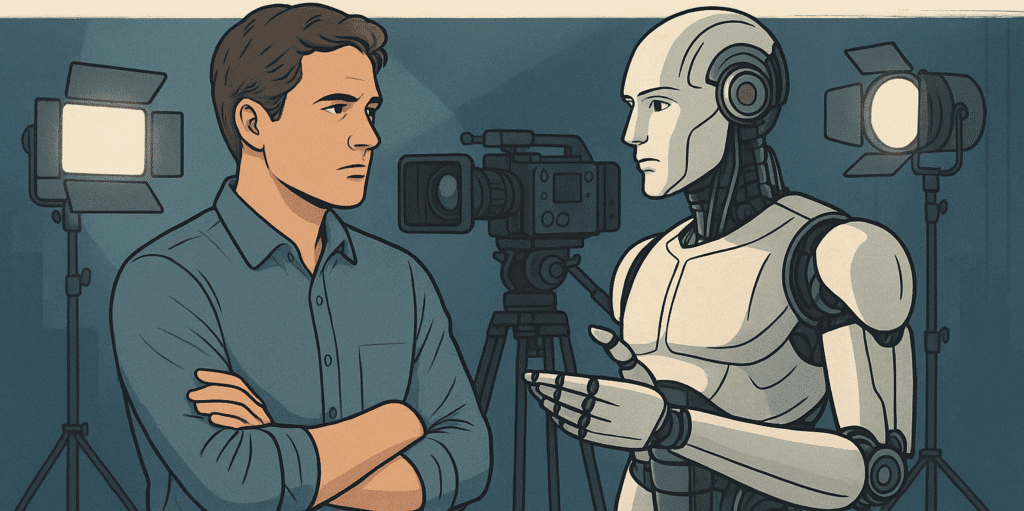How Actors Are Adapting to the Rise of AI in Filmmaking—and What It Means for the Future

Artificial Intelligence is no longer a distant concept in the world of filmmaking—it’s here, and it’s changing everything. From AI-generated scripts and digital de-aging to synthetic voiceovers and virtual extras, the entertainment industry is embracing new technologies faster than ever before. But what does this mean for actors?
While there’s been fear, uncertainty, and plenty of headlines, actors are doing what they’ve always done: adapting, evolving, and reclaiming their space in the spotlight.
Understanding the Shift
AI tools are now being used to write dialogue, animate facial expressions, simulate performances, and even create entirely synthetic humans. This is especially prevalent in background acting and voiceover work, where studios can generate digital crowds or clone voices with a few clicks. The 2023 SAG-AFTRA strikes made headlines for addressing these very concerns, bringing AI ethics front and center in Hollywood.
The Actor’s Advantage: Humanity
One thing AI can’t replicate? The unpredictable, vulnerable, electric presence of a real human. Emotions that come from lived experience. The nuance of eye contact. The rhythm of breath in a scene. Audiences still crave real connection—and actors are at the heart of that.
Performers are beginning to view AI not just as competition, but as a collaborator. Just like green screens and CGI changed the technical side of acting, AI is becoming another tool to navigate, not a replacement for the craft itself.
How Actors Are Adapting
1. Embracing Digital Literacy
Actors are learning about AI to protect themselves and expand their skill sets. Understanding your rights when it comes to digital likeness, voice replication, and consent is key. Being digitally savvy helps actors stay ahead of contracts, negotiations, and representation.
2. Diversifying Skill Sets
With the rise of voice AI, motion capture, and virtual production, actors are exploring new areas of performance. This includes learning performance capture, VO for interactive media, or how to act with virtual characters and props. Adaptable actors are thriving in this tech-forward landscape.
3. Advocating for Ethical Use
Many actors are pushing for transparency and ethical boundaries in how AI is used. This includes union action, supporting legislation, and speaking out on the importance of consent and fair compensation when digital replicas are involved.
4. Focusing on What’s Irreplaceable
Actors are leaning into the qualities that make them uniquely human—improvisation, emotional depth, chemistry with scene partners. No algorithm can mimic the magic of a live performance or the energy of a person who’s lived and felt deeply.
The Future: Coexistence, Not Competition
Rather than a war between humans and machines, the future of acting may be a fusion. AI can streamline production and create new types of storytelling, but the heart of every compelling narrative will always be the human experience.
For actors, this is a call to be both creators and protectors of their craft. To use technology without being used by it. To stay informed, stay authentic, and stay connected to what makes performance truly powerful.
Stay inspired.
